EU-US or US-EU?
Adelina Marini, October 2, 2010
 Humour in supreme diplomacy is not funny. It is usually a way to say something important without putting a focus on it. It is indeed used by the way in occasions when you know it will be appreciated properly. Such, for example, was the case with the joint press conference of the American Secretary of State Hillary Clinton and EU High Representative for external relations baroness Catherine Ashton in Washington on September 29. Then Mrs Clinton said, a little before giving the floor to Catherine Ashton, that the US was looking very much forward to the US-EU summit - "that’s what we call it, she [Catherine Ashton] calls it the EU-U.S. summit".
Humour in supreme diplomacy is not funny. It is usually a way to say something important without putting a focus on it. It is indeed used by the way in occasions when you know it will be appreciated properly. Such, for example, was the case with the joint press conference of the American Secretary of State Hillary Clinton and EU High Representative for external relations baroness Catherine Ashton in Washington on September 29. Then Mrs Clinton said, a little before giving the floor to Catherine Ashton, that the US was looking very much forward to the US-EU summit - "that’s what we call it, she [Catherine Ashton] calls it the EU-U.S. summit".
We act separately but in a coordinated manner
This remark that caused smiles and laughter in the room shows something very important. In a moment when rapid and unpredictable processes of global political and economic shifts are taking place, the EU and the US need each other more than ever. This is being realised from both sides of the Atlantic but the possibility to be realised, though, has been given by the entry into force of the Lisbon Treaty on December 1 of last year. Something which Hillary Clinton did not miss to mention: "The post-Lisbon EU is expanding its role in world affairs, and the United States values our growing partnership with the EU and we see it as a cornerstone of global peace and security".
In the same time, however, each country is continuing to act according to its 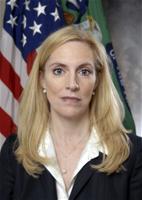 own visions but in coordination with partners. Before the Goethe Institute in Frankfurt, the American Under Secretary for International Affairs Lael Brainard also said that currently America and Europe were starting to deliver on their promises of fundamentally strengthening financial safety and soundness. And although she explicitly stated that both the EU and the US acted in full coordination, still each of the sides undertook its own actions in the area of financial regulation.
own visions but in coordination with partners. Before the Goethe Institute in Frankfurt, the American Under Secretary for International Affairs Lael Brainard also said that currently America and Europe were starting to deliver on their promises of fundamentally strengthening financial safety and soundness. And although she explicitly stated that both the EU and the US acted in full coordination, still each of the sides undertook its own actions in the area of financial regulation.
The passage of the new financial regulation law, known as the Dodd-Frank legislation, restrains the risks undertaken by the biggest and interconnected financial firms; provides the government with critical new tools to respond to financial crises while protecting taxpayers and the economy; ensures that most derivatives are cleared through central counterparties with strong oversight; and establishes the strongest consumer financial protections in American history.
In Europe, the EU institutions undertook similar measures, although a little bit later than the US. Last year it was the other way round - Washington was lagging significantly behind when Brussels had already had ideas for financial regulation and supervision.
Even together the EU and the US cannot succeed alone
In spite of the strengthening of the transatlantic partnership and coordination on major issues in the G20 agenda, as Lael Brainard also admitted, the domestic reform neither in America nor in Europe would be sufficient. Financial firms, markets, and transactions are more interconnected than ever before, and the breadth and depth of
these linkages require better coordination across borders. "Without internationally consistent standards, large financial firms will tend to move their activities to jurisdictions where standards are looser and expectations of government support are stronger. This can intensify risk throughout the system. Financial reform will not be complete until we achieve a level playing field with high-quality standards across the world's major financial centers covering the most globally mobile activities, such as capital and derivatives".
Meanwhile, but in Brussels, another assistant treasury secretary spoke about euro-american cooperation. By the way, both ladies spoke in very important places. Brainard - before the Goethe Institute in Germany, not only because she is of German descent but because of Berlin's role as an EU motor and as a major proponent currently of tighter financial regulation and supervision, as well as an opponent of resolution of banks with taxpayers' money. Marisa Lago, Assistant Secretary for International Markets and Development, spoke before Eurofi, a European think-tank, led not by anybody else but Jacques de Larosiere, the Frenchman whose report led to the beginning of EU's financial report.
 Besides, Marisa Lago participated in a Eurofi conference, dedicated entirely on the forthcoming G20 summit in South Korea. She also used humour by quoting a Financial Times article, saying that it was high time to move away from a sybaritic menu of foie gras and soufflé to "meat and two veggies" or "as we Americans would say "meat and potatoes" - core issues that are tough, but ultimately more
Besides, Marisa Lago participated in a Eurofi conference, dedicated entirely on the forthcoming G20 summit in South Korea. She also used humour by quoting a Financial Times article, saying that it was high time to move away from a sybaritic menu of foie gras and soufflé to "meat and two veggies" or "as we Americans would say "meat and potatoes" - core issues that are tough, but ultimately more
nourishing". She said that the main "courses on the menu" would be capital, the systemically important financial institutions (SIFI), resolution, derivatives markets. All these dishes the EU and the US cooked separately but shared common recipes.
After she recalled how much was done on those main courses in America and Europe, in conclusion Marisa Lago practically repeated entirely the words of her colleague Lael Brainard: "Our overarching objective remains unchanged: to raise financial regulatory standards globally to promote a level playing field. Without
internationally consistent standards, large financial firms may be tempted to move their activities to jurisdictions where standards are looser and expectations of government support are stronger".
Cooking meat and potatoes without meat
More or less this is how the usual dish sounds, being prepared now for the G20 "dinner". As Jillian Tett writes in the Financial Times, the greatest disputes before the Seoul summit go around the resolution regimes. The issue is especially popular against the backdrop of the news that the Irish government is preparing a resolution package worth 50 bn euro for three Irish banks. And, while politicians in the past year mainly talked about banking capital, derivatives and bankers payroll, the issue of resolution remained. And this issue is the "meat" in the dish.
In it is in the foundation of the serious differences between the EU and the US. The package the Congress has approved earlier this year and President Obama signed into law, foresees a clear scheme for prevention of resolution of "too big to fail" banks with taxpayers' money. This scheme, by the way, referred before only to medium banks but now it covers the biggest ones too because of the failure of the Lehman Brothers. In Europe there is no such scheme. Jillian Tett writes that governments cannot afford ignoring the issue. Global bank bank woes have not gone away; nor has the propensity of investors to panic at the cost of state-backed bail-outs. "If  nothing else, it shows why a clearer resolution regime is needed – for big and mid-sized banks alike".
nothing else, it shows why a clearer resolution regime is needed – for big and mid-sized banks alike".
The issue is of special interest especially in the most developed industrialised countries, members of the G20 where democracy has deep roots. Because, as Jillian Tett says, "If governments cannot afford to let banks go bust when bankers (and investors) make stupid decisions, but always need to bail them out, then you do not have financial capitalism". And the lack of financial capitalism would mean a serious state intervention and then who would say which is the reasonable boundary that the state should never cross?
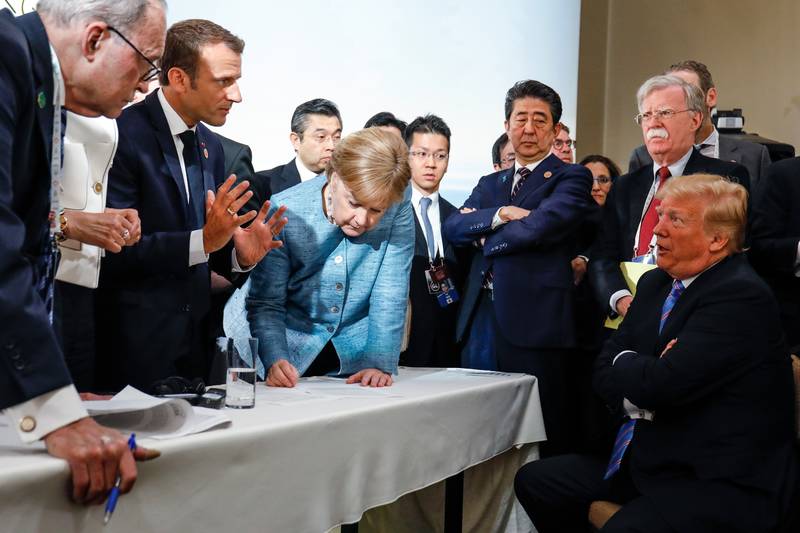 Macron, Merkel, Abe, Trump | © Council of the EU
Macron, Merkel, Abe, Trump | © Council of the EU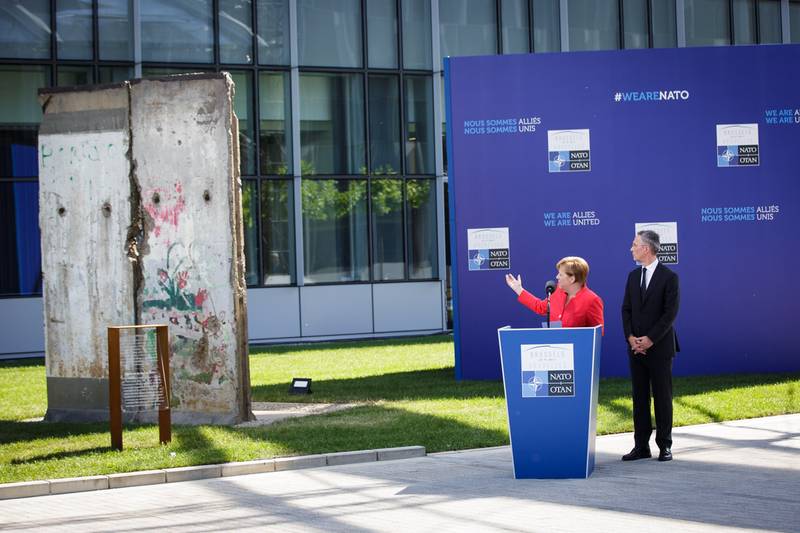 Angela Merkel | © Bundesregierung
Angela Merkel | © Bundesregierung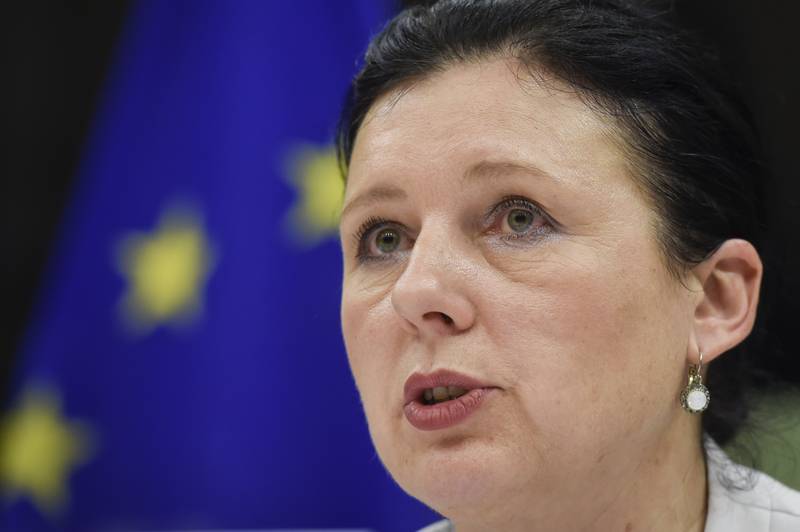 Vera Jourova | © European Parliament
Vera Jourova | © European Parliament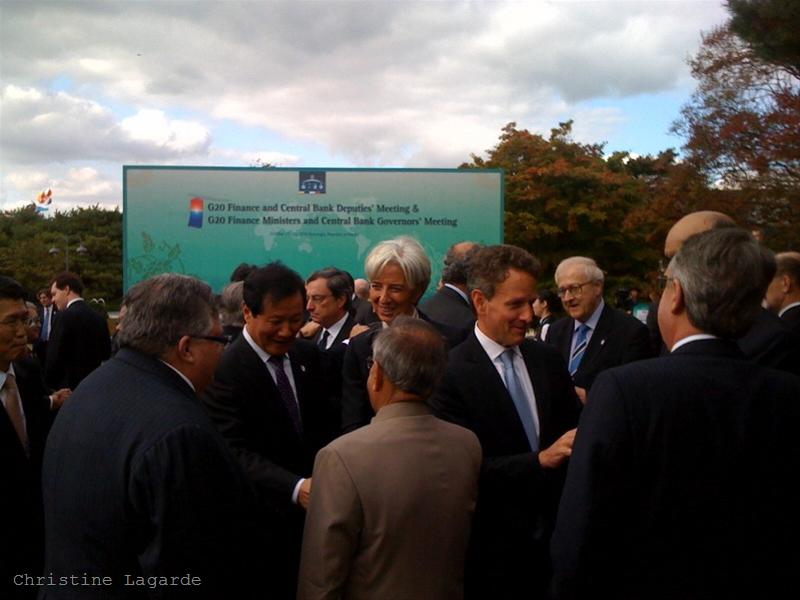 | © Christine Lagarde
| © Christine Lagarde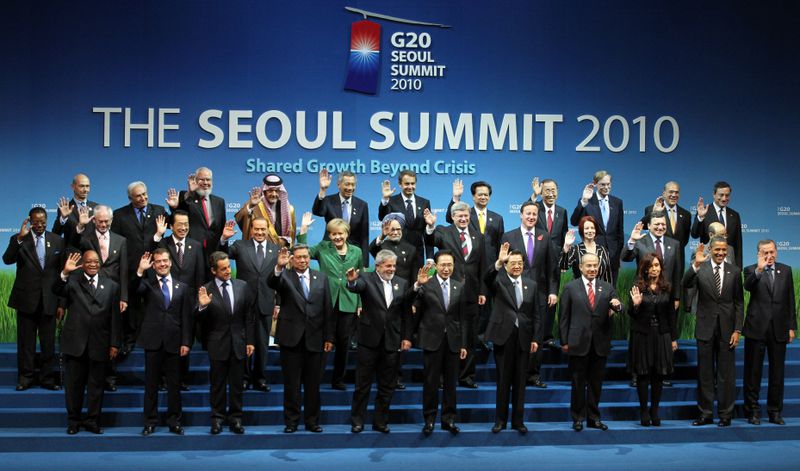 | © G20
| © G20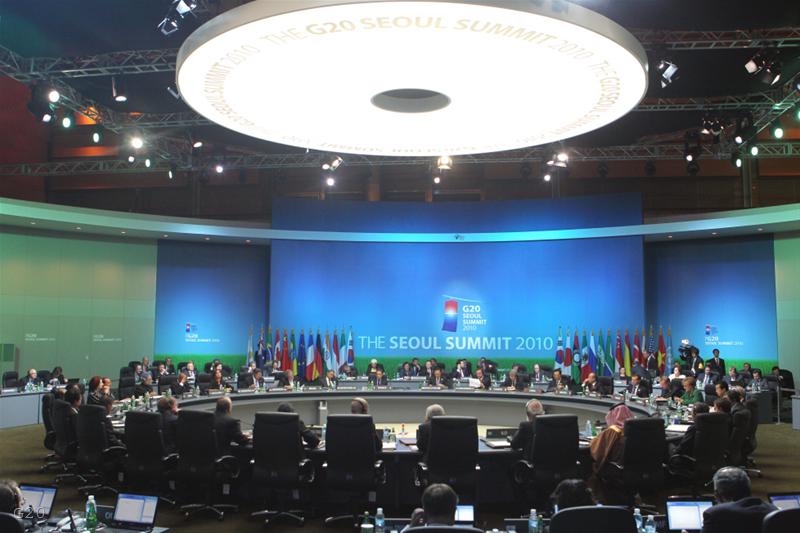 | © G20
| © G20